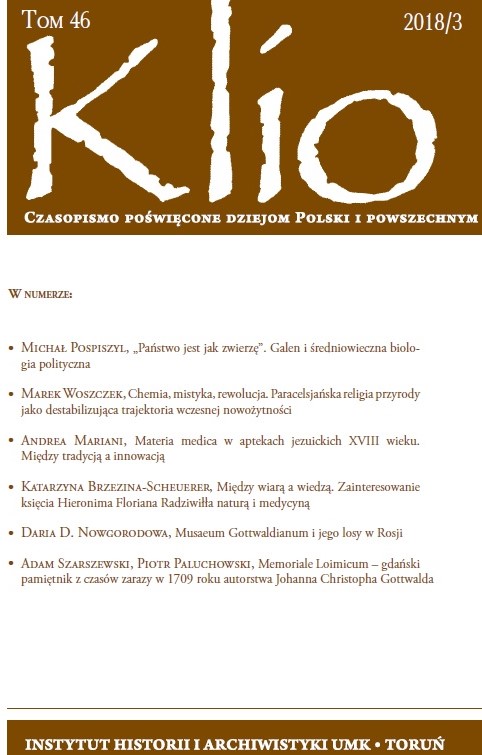Chemia, mistyka, rewolucja. Paracelsjańska religia przyrody jako destabilizująca trajektoria wczesnej nowożytności
Chemistry, Mysticism, Revolution. The Paracelsian Religion of Nature as a Destabilising Trajectory of the Early Modernity
Author(s): Marek WoszczekSubject(s): Christian Theology and Religion, Politics, Epistemology, 16th Century, 17th Century
Published by: Wydawnictwo Naukowe Uniwersytetu Mikołaja Kopernika
Keywords: Paracelsianism; nature mysticism; early modern utopia; Christianopolis; Johann Valentin Andreae;
Summary/Abstract: The radical Paracelsian discourses of the late 16th and early 17th century evolved toward a kind of the speculative religion of nature which was a part of the wider spectrum of ideological tensions, attempts at renewing the Reformation impulse, and a birth of the proto-pietistic spirituality (Johann Arndt, Johann Valentin Andreae) coupled with mysticism of nature. It is claimed that what is most significant in them is not so much particular ideas but rather the “Paracelsian effect”: destabilisation and deep displacements of boundaries between theory, speculation, even theology, and the material practices as well as the social imagination of order and renovatio, which contributed to formation of the epistemological and political frame of the early modernity. In particular, the author construes Andreae’s Christianopolis as a dialectical product of Paracelsianism – an interesting example of an utopian-political reaction to the heterodox religion of nature, which illustrates an extent and dynamics of those displacements at work.
Journal: Klio. Czasopismo poświęcone dziejom Polski i powszechnym
- Issue Year: 46/2018
- Issue No: 3
- Page Range: 37-52
- Page Count: 16
- Language: Polish

